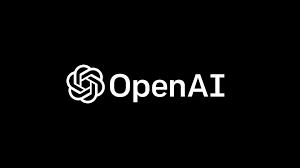OpenAI, the leading artificial intelligence company, is reportedly considering a significant shift from its current capped-profit structure to a full for-profit model. CEO and co-founder Sam Altman allegedly discussed this potential change with shareholders in mid-June, as first reported by The Information. If implemented, this transition could see OpenAI’s non-profit board lose its control over the company, fundamentally altering its operational and governance framework.
OpenAI Current Structure and Mission
Currently, OpenAI operates under a unique dual-structure model that combines a non-profit entity with a capped-profit arm. This design was intended to balance the profit motives necessary to attract substantial investments with the overarching mission of advancing artificial general intelligence (AGI) research for the benefit of humanity. The capped-profit model, introduced in 2019, allows investors to earn returns up to 100 times their investment, while funneling excess profits back into the non-profit to support further research and development.
OpenAI, valued at around $86 billion, initially adopted this model to overcome the funding limitations inherent in a purely non-profit structure. They deemed traditional donations insufficient to support their ambitious goals, such as developing safe and beneficial AGI. By allowing for capped profits, OpenAI could tap into larger pools of capital while maintaining some level of commitment to its foundational vision.
Despite this innovative structure, OpenAI has consistently cautioned that investments in the company should be viewed as high-risk, akin to donations, due to the unpredictable nature of AGI development and its potential implications.
Potential Shift to a Full For-Profit Model
The proposed shift to a full for-profit model represents a substantial departure from OpenAI’s original mission-driven approach. This transition would likely involve significant changes in governance, with the non-profit board potentially relinquishing its control over the company. Such a move could attract even greater levels of investment, enabling accelerated development and deployment of AI technologies. However, it also raises concerns about the company’s commitment to its original mission of ensuring that AGI benefits all of humanity.
Critics argue that a full for-profit model prioritizes short-term financial gains over long-term ethical considerations, potentially leading to the deployment of AI technologies that exacerbate social inequalities or misuse that harms society.
OpenAI Board Restructuring
In parallel with exploring this structural shift, Sam Altman has been actively reshaping OpenAI’s board to better align with the company’s evolving strategic direction. The new board members include several high-profile figures:
- Sue Desmond-Hellmann: Former CEO of the Bill and Melinda Gates Foundation, bringing extensive experience in global health and philanthropy.
- Nicole Seligman: Former Executive Vice President of Sony, providing expertise in corporate governance and legal affairs.
- Fidji Simo: CEO of Instacart, known for her leadership in consumer technology and digital platforms.
- Paul Nakasone: Retired U.S. Army General and former NSA Director, offering a strategic perspective on cybersecurity and national security.
Nakasone’s appointment, in particular, has sparked criticism from privacy advocates, including former intelligence contractor Edward Snowden. Critics argue that his background in surveillance could influence OpenAI’s policies and practices in ways that might compromise user privacy and civil liberties.
Broader Implications
The potential transition to a full for-profit model and the ongoing board restructuring reflects broader trends in the AI industry, where the lines between for-profit innovation and ethical stewardship are increasingly blurred. As OpenAI navigates these changes, it faces the challenge of balancing its need for significant investment with its mission to develop AI technologies that are safe, transparent, and beneficial for all.
These developments also signal a competitive landscape where major AI players, including OpenAI, Google, and Microsoft, are vying for dominance. The strategic decisions made by OpenAI in the coming months will likely influence not only its future trajectory but also the broader direction of AI research and deployment.
As the AI landscape continues to evolve, stakeholders, including investors, regulators, and the public, will be closely watching how OpenAI balances its profit motives with its ethical responsibilities. The outcomes of these decisions could set important precedents for the future of AI governance and its role in society.
See also: Binance Launches ASI Token Trading Ahead Of Merger


















